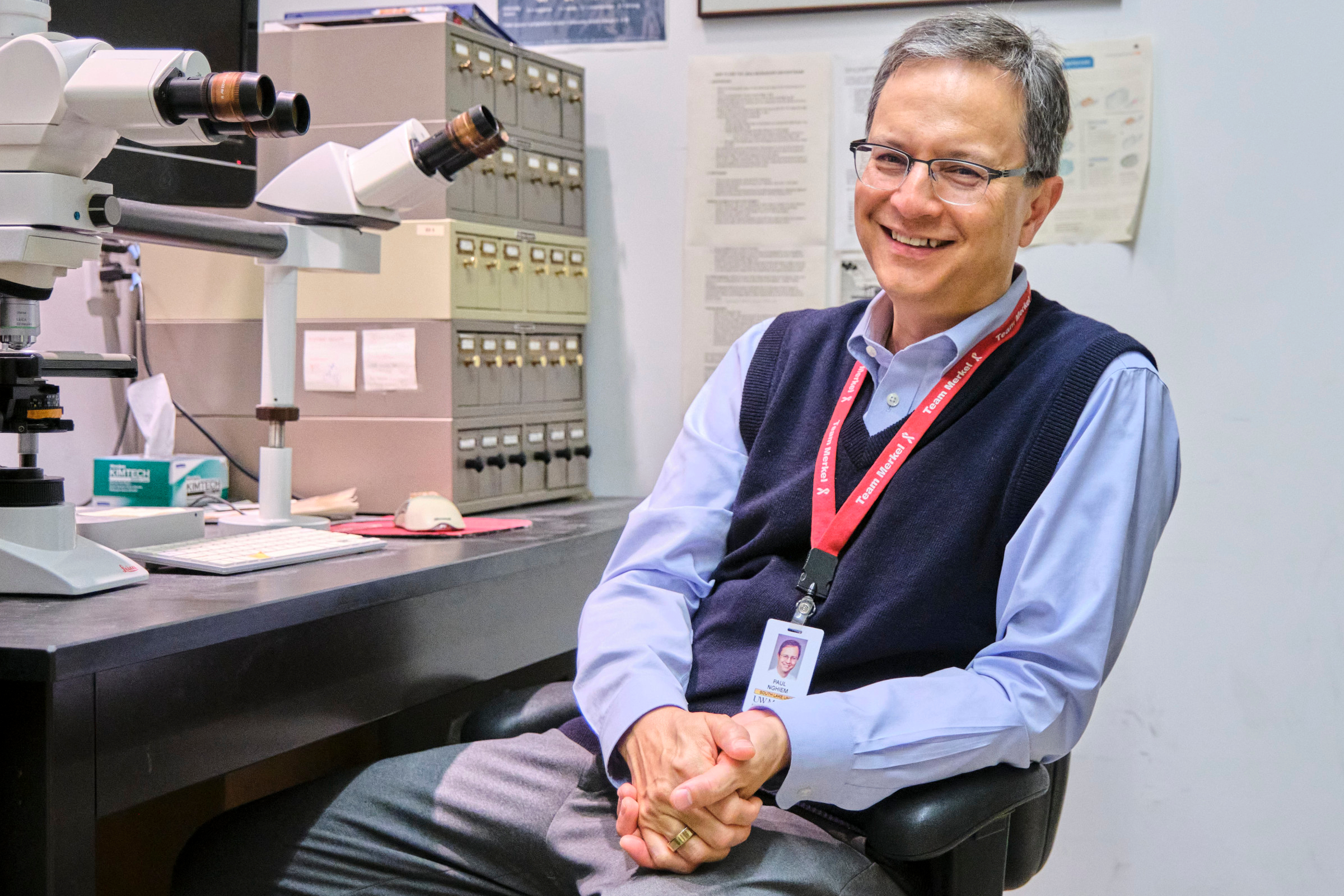
You bet your life: After I was diagnosed with a rare cancer, I discovered how a small band of physician-scientists triggered a revolution
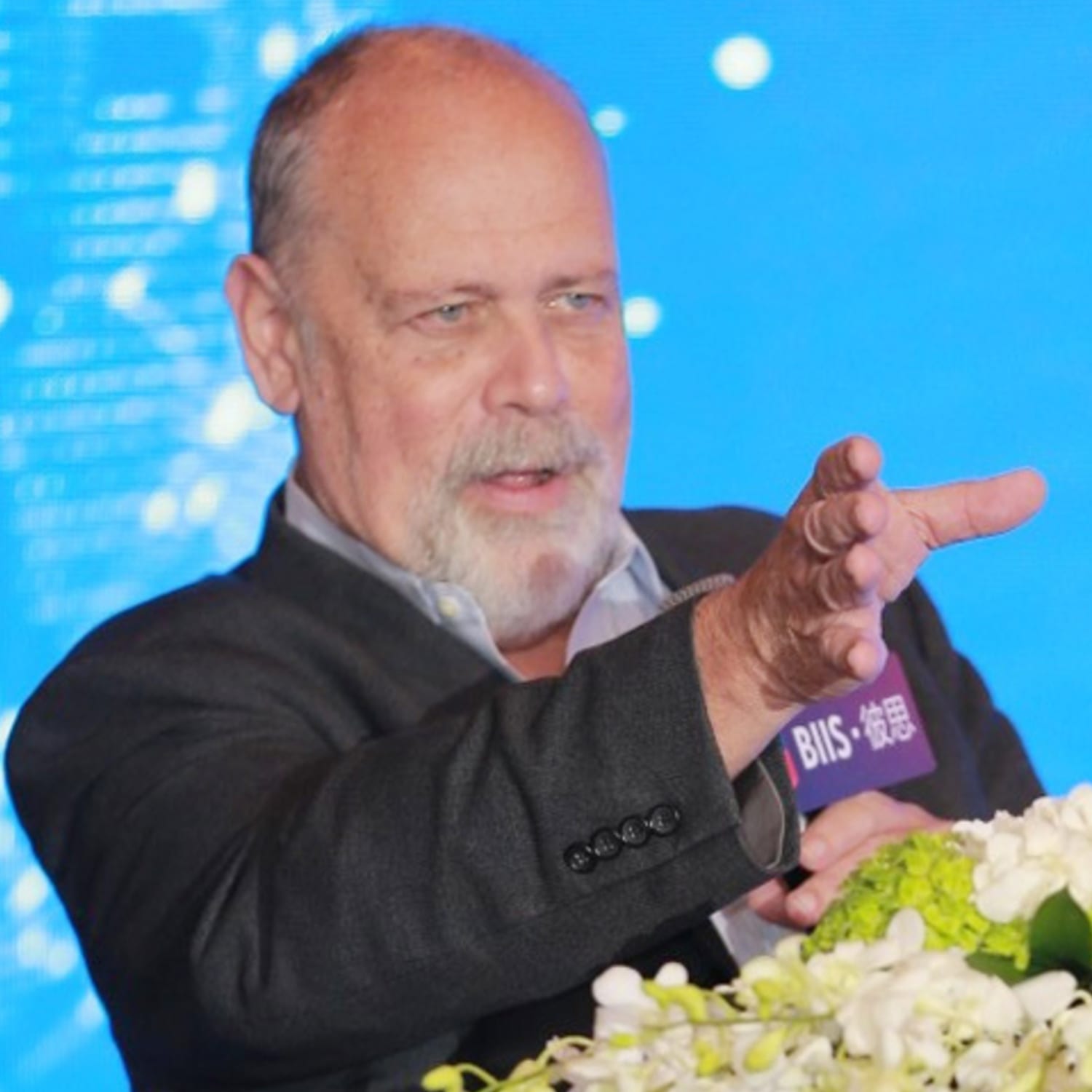 Bioregnum Opinion Column by John Carroll
Bioregnum Opinion Column by John CarrollIt all started to look seriously bad when my legs began to swell up, which I initially — stupidly — shrugged off. By the time it became apparent that my kidneys had stopped working, I grabbed an Uber after arriving at the airport near where I live in Texas and headed straight to the ER of Valley Baptist Medical Center near the Mexican border.
For the first four days at Valley Baptist, I witnessed a healthcare system at war with common sense. My doctors would wander in and out in the morning, offering little detail and few answers in their brief pit stops. Sometimes they didn’t come at all or just kept moving if I was nodding off. I was subjected to a poorly-handled procedure to install nephrostomy tubes — which I was forced to loudly and profanely demand from an interventional radiology team unhappy with my potassium numbers after they tried wheeling me in and then back out of the interventional radiology arena without explanation. I don’t recall even being told about a colossal blood clot that threatened my life — but did get three rounds of dialysis that may well have saved my life.
The initial working theory, as told to me by a PA in the ICU — Mike, the only actual source of in-depth information during my entire stay — was that lymphoma had probably swelled my lymph nodes and dammed up my kidneys. I wish. On the fifth morning, 48 hours after a biopsy, my oncologist in charge — who had earlier told me in a bit of intentional expectation management that it would take seven days to determine what cancer I had — rather triumphantly announced that my preliminary biopsy analysis concluded that I had neuroendocrine tumors with Merkel cell features.
It was, he announced, “stage 4.”
I know stage 4. Not good. But at this point I could say I’ve had better relationships with used car salesmen wearing joke ties. I hoped he was blundering on sparse information. And what was Merkel cell carcinoma, anyway?

All of the news, delivered with full-text to your inbox. For professionals discovering, developing, and marketing biopharmaceutical drugs.
The only treatment, he added, with my wife standing next to me, was chemo. No surgery, no radiation, and no explanation. Just chemo.
I didn’t know it at the time, but he definitely screwed that up. If I had stayed at Valley Baptist and been treated with chemo, I likely would have seen Merkel cell carcinoma rear back up within a few months, putting me on a statistically short path to the grave.
As it turned out, there was a turn of good luck involved here as well. The pathologist handling the biopsy had trained with the team at the University of Texas MD Anderson Cancer Center, and would identify aspects of the cancer cells that would convince my medical crew in Houston early on that they were indeed dealing with Merkel cell carcinoma.
As for Valley Baptist, I had already determined that I had to get the hell out of Dodge and make a run for a top-tier medical institution in the region. My case manager said that if I wanted to leave they would have to arrange a transfer. But I already had the lay of the land from the small army of assistants and nurses who kept the hospital on its rickety track. A nurse told my wife and I — sotto voce — that as we were headed into the weekend, that could take days.
You should just go, she said quietly.
My wife drove the getaway car after I signed the AMA (against medical advice), and a friend in the industry helped text my way into MD Anderson as we made the six-hour trip north.
“A complete waste of time”
Like a lot of people, I’ve heard about melanoma, skin cancer triggered by exposure to the sun. I’m 67, I’ve spent a considerable amount of time in the sun, and I knew I had risks. About seven months before fate dropped a ton of cancer bricks on my head, I had a full body exam done by a pro.
Nada.
So I thought I had skin cancer covered.
Wrong again.
Merkel cells in the skin are there to assist with sensation and touch.
“The density of them is much higher on the lips and the fingertips,” said Paul Nghiem, a leading Merkel cell researcher at the University of Washington and the prestigious Fred Hutchinson Cancer Center in Seattle. “If you put your hand in your pocket and you’re feeling the difference between sandpaper and silk, those are Merkel cells telling you about texture and touch.”
Nghiem, a dermatologist by training, ended up as Mr. Merkel Cell — one of the key figures in this field with the longest, broadest history of treating patients — in a serendipitous fashion. Back in the mid-1990s, his professor needed to produce a chapter on Merkel cell carcinoma, and for the professor, Nghiem seemed the obvious person to write it.
Nghiem didn’t much care for the assignment. But what started out as a “complete waste of time” became the big focus of his career, one that would contribute to a tidal shift in therapy and offer a key role in examining how this cancer can be cured one day — or made livable — for most advanced patients.
Nghiem — an effusive, enthusiastic physician-scientist — now doesn’t believe Merkel cells become cancerous. Rather, it seems to him that cells in the body are hijacked and acquire Merkel cell features as they turn cancerous.
Merkel cell carcinoma can follow a melanoma-like process, exhibited on the skin by something that may look like a nodule or raised bruise. A large majority of cases — predominantly men above the age of 65 — are linked to the polyomavirus, which inhabits a large swath of the population. Chatting about my case, Nghiem said I may have had something visible on the skin months before the diagnosis, which could have gone unnoticed and then disappeared as it spread inside the body.
He doesn’t know, of course. But he’s observed that people whose immune systems have quelled cancer on the skin before it spread to lymph nodes tend to have a strong natural response to fighting advanced Merkel cell — giving them a big boost when immunotherapy comes into play.
Wherever the cancerous cells come from, once the cell division process begins, it tends to run amok in advanced cases. As my doctor at MD Anderson described it, where you see a single cell division in melanoma, you can run up the lethal score dozens of times faster with Merkel cell.
That makes it a quick and efficient killer, a berserker cell, especially for the advanced patients who are not eligible for surgery. For those patients, chemo was the original standard of care. But chemo flattens the immune system, the exact opposite of what you want to do if you need to fight Merkel cell. Which is why most of the improvements oncologists saw in patients treated with chemo were brutally transient.
Early on in this process, my doctors concluded that Merkel cell carcinoma had spread to my lymph nodes, which in turn swelled and shut down my kidneys. Blocked kidneys were the first thing that came close enough to killing me — with my potassium numbers spiking into a deadly range. But Merkel cell isn’t just a singular rare cancer, generating some 3,000 new diagnoses a year. Because my cancer had advanced into a segment of my body that was choked with arteries, veins, the path for kidney drainage and more among the swollen lymph nodes — a biological traffic snarl — it was beyond the reach of surgery. And it represents one of about 1,000 new advanced cases a year.
In other words, I was one of just a slice of an already tiny group.
That’s a far cry from one of the Big Cancers like lung cancer, where biopharma is throwing major cash. Ask any drug developer, large or small, what’s driving their work, and they’ll tell you it’s all about patients. But what they don’t say is that it’s typically a critical mass of patients. Patients whose collective cases can spin off billions of dollars a year in revenue.
One thousand new cases a year in the US — where the money is in global drug development — is not much of a market to tempt drug developers.
And Merkel cell was never a favorite in the big cancer story being told to investors over the last decade.
“You just go away”
Ipilimumab, the CTLA-4 immunotherapy birthed by Nobel Prize winner Jim Allison and sold as Yervoy, became the pioneer checkpoint inhibitor in the field. Then came nivolumab (Opdivo) from Bristol Myers Squibb and pembrolizumab (Keytruda), the King Kong of immunotherapy drugs that generated $25 billion of revenue for Merck in 2023. Keytruda made the big bucks by zeroing in on cancer with a full pipeline of projects for one drug. It’s been making Merck investors happy campers ever since it was first approved for advanced melanoma in 2014.
Merkel cell carcinoma, it turns out, is one of the most immunogenic tumors in the book. Nghiem and others advocated early on that a drug that unleashed the immune system would go a long way to treating the cancer. For them, Merkel cell was a classic low-hanging fruit. The problem was the harvest was too small to whip up potential industry backers.
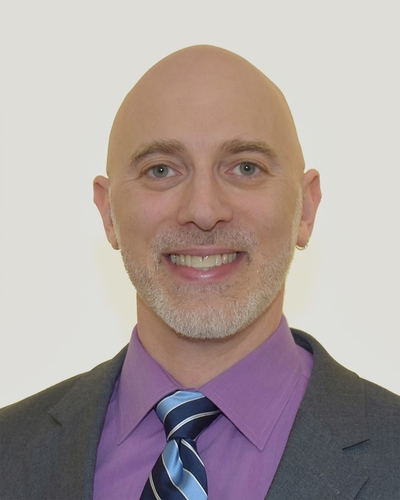 Isaac Brownell
Isaac Brownell“It has the highest response rate of any solid tumor to single-agent checkpoint,” Isaac Brownell flatly says. Brownell, a senior investigator and chief of the Cutaneous Development and Carcinogenesis Section, Dermatology Branch inside the NIH, was directly involved in the cutting-edge early research into immunotherapies in MCC and has stayed focused on it, screening drugs for something new. A lot of Merkel cell’s response to treatment has to do with the virus, he adds, which expresses foreign protein — a clear target the immune system was created to hunt down and destroy. In other cancers, tumors can get rid of passenger mutations and evade immune responses, making them a more difficult target. But what is foreign and stays on the radar is a beacon for immunotherapy.
So Nghiem and others went knocking on Bristol Myers’ door to test a hypothesis where they had high confidence of success.
The door stayed closed. They never got a chance to test ipilimumab, said Nghiem, who also had a brief flirtation with Pfizer’s 4-1BB before the big checkpoint inhibitors came along.
But it didn’t get better with nivolumab, Bristol Myers’ big PD-1 drug that stripped cancer cells of the brakes applied to the immune system. Eliminating cancer’s ability to thwart the immune system would surely save lives, but Bristol Myers made it clear they were going to take a pass on Merkel cell.
“BMS said, ‘You just go away. We’re not interested at all,’” Nghiem said.
Then, the researchers did some of their own strategic thinking.
While Bristol Myers and Merck were hogging the spotlight with their PD-1s, Merck KGaA came along with their PD-L1 called avelumab. I covered this drug, and the company, closely at the time. And I wasn’t too kind. What I saw was a drug that would fail a string of important studies as the German outfit fought against a 10-year track record of clinical failures.
The first time my doctor at MD Anderson, Mike Wong, brought up avelumab (sold as Bavencio), I turned to my wife — another longtime writer in biopharma — and asked her to remind me who made it.
“Merck KGaA,” she said. EMD Serono in the US.
My reply: “Oh, shit.”
But what I saw as a program ripe for setbacks at one of the most ill-starred R&D groups in the industry looked like a historic opportunity for the small circle of Merkel cell experts in the world. And it was, in more ways than one.
“They were behind,” Nghiem recalls about Merck KGaA, which was partnered with Pfizer at the time. “They were behind Bristol Myers. They were behind [US] Merck.” Merkel cell carcinoma looked to them like a short path to the market, where the industry partners — who would break up in 2023 — could gain an initial approval and then start to expand the franchise with new indications. That’s a classic market strategy in the oncology world.
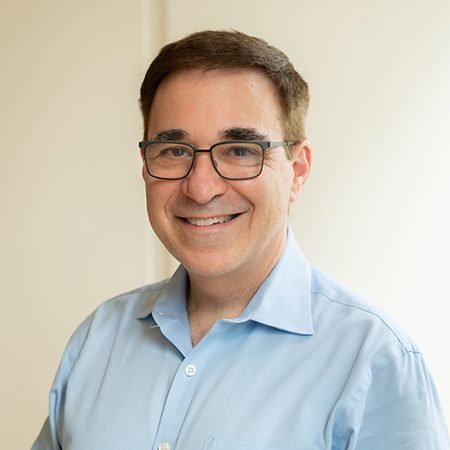 Howard Kaufman
Howard KaufmanHoward Kaufman, then an investigator at the Rutgers Cancer Institute and a prominent member of the small circle of Merkel cell aficionados, used his role on the EMD Serono scientific advisory board to push for the study. It didn’t begin well.
“So the first thing they told me at EMD Serono was, of course, ‘There’s very few Merkel cell patients,'” Kaufman told me. “‘We’ll never be able to do the study.’ I said: ‘No, you don’t understand. There’s very few patients, and I know every doctor who takes care of them.'”
And the cherry on top: There were no competing studies. They had an open playing field to recruit patients.
Kaufman would go on to be the principal investigator in the maiden trial of avelumab for MCC.
And there was more than one voice calling on Merck KGaA to try its drug on Merkel cell. Brownell’s office was just a hallway away from noted NCI immunotherapy expert James Gulley, who had done early-stage work on avelumab. Well aware of how far behind Merck KGaA was with the drug, Brownell touted Merkel cell as an ideal target for immunotherapy. And that helped spur the influential Gulley to throw his weight behind the avelumab approach, Brownell says.
The researchers ran avelumab through a small, single-arm Phase II study with data on 88 patients who had failed chemo and blew it out, kind of. The requirement on chemo, which would blunt efficacy, was done at the insistence of the FDA, Kaufman said. But regulators were also waiting for the data.
One in three patients responded to the drug in the first cohort, the FDA saw in that first clinical foray. About one in 10 had a complete response. For 86% who responded, the response lasted at least six months, dropping to 45% at 12 months. The researchers tracked duration that lasted from a few months to about two years.
No “simple confounding factor”
From start to finish, Kaufman says, the trial took nine months, and the FDA came through with an accelerated OK just 2 weeks after the filing was accepted, delivered in a surprise phone call while Kaufman was attending a satellite meeting for the Society for Immunotherapy of Cancer. He was caught completely off guard by regulators’ speed.
I have to say, for a cancer patient, the data they had in hand can be hard to muster a cheer for. Everybody wants better odds than that. But this was a field accustomed to miserable results and researchers knew they had proven conclusively that they were onto something big.
There was no way you could misinterpret the data, said Nghiem, who helped lead the trial in Seattle. It more than satisfied the FDA team around Richard Pazdur that the efficacy was clean. No “simple confounding factor” could derail the conclusion, he added. Avelumab worked, and the accelerated approval came through in the spring of 2017, giving Merck KGaA its first real bragging rights to a significant R&D win in 10 years.
In 2018, the researchers concluded another small study, this time for the US Merck, which also included Nghiem, who said it “was very hard” to get the company on board. That study proved Keytruda was a game-changer in frontline Merkel cell therapy, without chemo. And researchers followed up with a confirmatory batch of data in frontline therapy that sealed the regulatory deal for Merck KGaA.
The FDA cited Keytruda for a 56% overall response rate, with a complete response of 24% on its approval, cementing the new frontline approach as a new standard of care.
Even without Bristol Myers’ cooperation, nivolumab and ipilimumab are on the menu of possible treatments for the simple reason that immunotherapies work for a bit better than half of patients with advanced Merkel cell carcinoma. And in some cases, it may prove to be a rescue approach for dying patients.
A third PD-1, retifanlimab (Zynyz) from Incyte, would earn an accelerated FDA OK for MCC in 2023 — years after the standard of care had shifted decisively. It’s rarely mentioned by any of the physicians I spoke with.
Fast-forward seven years from that first OK and my oncologist at MD Anderson would still recommend Bavencio for my first swing at bat against this cancer. There’s no statistical divide here. No one’s done any randomized study of an immunotherapy for MCC, let alone a head-to-head.
And it’s not going to happen.
The researchers in the field are unanimous that no one wants to foot the bill for more definitive work on a slice of a rare cancer market. And besides, what patients would volunteer for any randomized study with chemo when you have the clinical proof in hand? As for a head-to-head, there isn’t enough money at stake to compete for the market. And maybe not that much to differentiate themselves anyway.
Ironically, the absence of a randomized study has kept immunotherapy sidelined to a second-line therapy in Europe. As a result, Nghiem said, expert practitioners nudge the cancer with chemo, but in low enough doses not to complicate their treatment, announce chemo didn’t work and move on to immunotherapy.
It’s just another example of gaming an inexact system, where leading practitioners have learned how to avoid being hamstrung by either recalcitrant pharma players or misguided regulators.
So why avelumab?
My MD Anderson team likes the active Fc arm, compared to the inactive Fc arm in Keytruda. That’s the downward spoke of an antibody — under the Y-axis — that’s in use in the drug structure. There can be some more complicating factors from this, but an active Fc arm can also deliver advantages, like natural killer cell recruitment.
It’s definitely a conclusion reached by the seat of the practitioner’s pants. But practical experience now figures heavily into the state-of-the-art guesswork involved in treating MCC. And at this point, the second wave of Merkel cell therapy relies a lot on observational work and one-on-one experimentation.
“It was a fantastic 17-year run…”
Here’s an example of the way experience is now influencing treatment: After Kaufman left the Rutgers Cancer Institute — determining that he wanted to devote his life to drug development and treatment after being offered a shot at the institute’s top job — he wound up as CEO of a biotech startup closely focused on melanoma. He would like to ramp up something in Merkel cell, but that’s proved elusive so far.
But one day a week he also treats patients at Massachusetts General Hospital, where he’s setting up a non-melanoma skin cancer center that includes Merkel cell. He’s concluded that some patients who aren’t responding to immunotherapy can be pushed into the responder circle with radiation.
That sort of hands-on experience gets quickly circulated among the small band of Merkel cell specialists. I’ve seen it in action first-hand in my own conversations at MD Anderson.
But the burst of investment that fueled an ongoing wave of immunotherapy R&D in biopharma has yet to deliver any new, approved marked improvements in Merkel cell, despite the wide recognition that it’s a great model for immunogenicity and cell therapy 2.0.
Part of that seven-year whiff in Merkel cell is attributed to the general lack of enthusiasm for tiny niche markets. After the biotech boom went bust a couple of years ago, smaller developers also were less likely to devote resources to Merkel cell. And now the Merkel cell network sounds distinctly spooked by the sudden downsizing that is going on among the giant players as the retreat of IPOs in biotech keeps the competition focused on big targets.
Case in point: The legendary Roche subsidiary Genentech recently slashed its work in immunotherapy, bidding goodbye to Ira Mellman, one of the best-known players in the field who led the work on Tecentriq.
“It was a fantastic 17-year run that allowed us to build possibly the biggest and best unit in industry or academia devoted to the science of cancer immunology and discovery of immunotherapeutics,” Mellman wrote on LinkedIn as he flagged his imminent departure.
And it’s over, as a downsized unit is absorbed into another department.
For Merkel cell insiders, it’s an example of a widespread retreat that’s having a clear impact on their field.
“I think investors are definitely moving away from I/O,” Kaufman said. “There’s no question about that…. There are a lot of other companies [besides Roche] that have been downsizing their I/O capabilities right now.”
Right around the time it gained approval to use its new LAG-3 immunotherapy, relatlimab, against melanoma, Bristol-Myers cut a program for a successor to Yervoy. It also didn’t go unnoticed in the Merkel cell circle that Bristol Myers’ application tied relatlimab’s use to its already OK’d Opdivo — pursuing a market the pharma giant believes will hit $4 billion by keeping it all in-house.
For these battle-scarred researchers, the lesson is clear: The hunt for maximum market cash continues to direct their efforts.
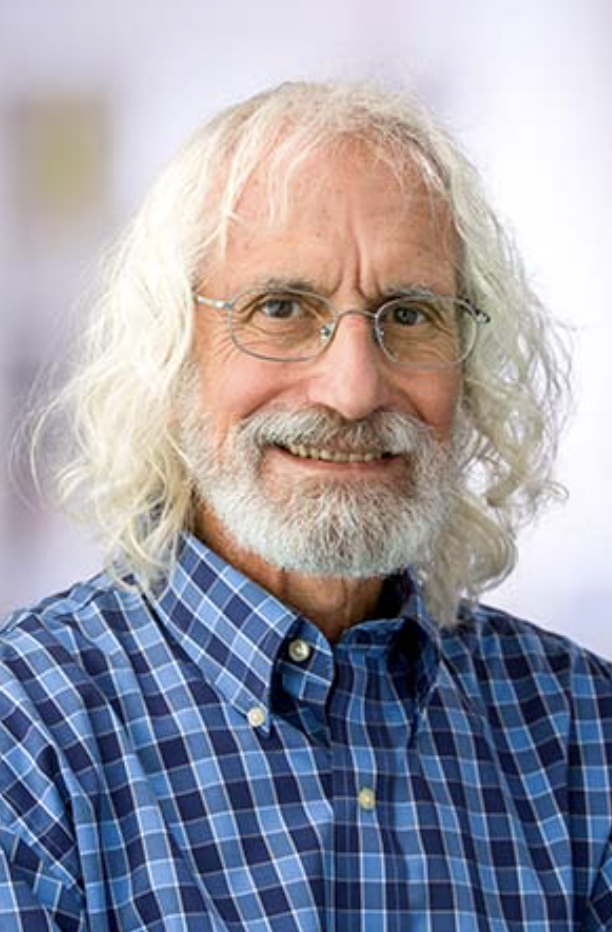 Phil Greenberg
Phil GreenbergThe big problem with Merkel cell right now is that finding the dollars to do research is harder than ever. And ultimately, an industry partner would be needed to take any new drug forward to a decisive trial, says Fred Hutch’s Phil Greenberg, one of the scientific founders of Juno, which helped hatch the CAR-T revolution and the move to engineered T cell therapies.
That’s a tough combination to deal with, pushing the bar higher.
“The problem now is that the level at which there’s support for these kinds of programs in industry has really gotten smaller,” Greenberg tells me. “And so you need much more proof of principle before you can engage essentially somebody to help support developing it.
“The win isn’t big enough to justify the risk of the investment. There was a time when people were willing to take that risk. It’s much less common now.”
It hasn’t helped, he adds, that the NIH budget has, in real terms, been shrinking. “NIH grants are trying to de-risk the projects,” he said, and that doesn’t help advance truly innovative, high-risk academic projects.
And that steady retreat in turn slows down their work, says Aude Chapuis, Greenberg’s colleague at Fred Hutch.
“I think they’re all out of date”
“We’re never going to see a TV ad for the treatment of Merkel cell carcinoma, because it is rare,” Harvard’s Jim DeCaprio mentioned in an interview on Merkel cell. But for DeCaprio, whose lab has long focused on MCC, “there are certainly opportunities to build on its really spectacular response to checkpoint blockade. To build on that opportunity.”
And the work is continuing, albeit more slowly and with greater risk of winding up in a dead end at an academic institute or being added to an unapproved toolbox that is gradually growing in Merkel cell.
Greenberg and Chapuis have been doing the kind of work in immunotherapy that has attracted biotechs and their legion of investors. Their work on T cell receptor therapies went into creating Affini-T, which is advancing programs for KRAS and p53. But when it came time to prioritize the work after carefully assessing what they needed to do with the money available, Merkel cell went out the window. Now Greenberg and Chapuis are doing the early-stage research in Merkel cell.
That’s just the way it works, Affini-T CMO Dirk Nagorsen tells me, in an industry that has undergone more than two years of prioritization reviews.
Just about everyone in biotech will tell you that right now, it can be hard to raise fresh funds, with a big focus on maintaining a two- or three-year financial runway and a believable timetable for human data. Demand is hot for big results in key markets. As for Big Pharma, the emphasis is on finding therapies that have been de-risked with human data, and Merkel cell remains on the fringes of their commercial radar.
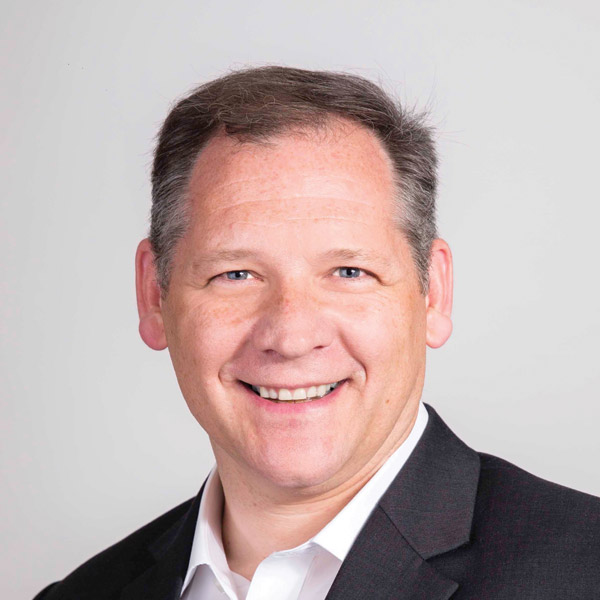 John Connolly
John ConnollyJohn Connolly, the chief scientific officer at the Parker Institute for Cancer Immunotherapy (PICI), assigns the current chill to a temporary phase — which will reheat as important new immunotherapies are approved.
“Agree with you on the rare diseases evaluation,” he responded to one of my emails. “I’m not sure about the broad based retreat from I/O. Cancer is still a huge payday, even for Big Pharma, and discoveries come in waves. A couple of wins will have them back in droves. Keep an eye on PICI.”
PICI — founded by Facebook billionaire Sean Parker — has been supporting work at Fred Hutch that aims to make it to the leader of the cell therapy 2.0 movement, including the efforts to directly engage solid tumors. For the researchers, Merkel cell carcinoma is still an ideal target to establish proof of principle.
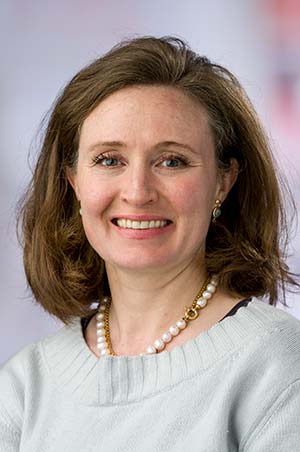 Aude Chapuis
Aude Chapuis“It’s pretty much nearly a 100% of these Merkels will express CD200,” says Chapuis, citing research that includes Brownell. “So it can be a very useful binder for the switch receptor that Phil had … and with that we have redone a construct.”
Using some state research money derived from the Big Tobacco settlement, they’re now lining up a small trial to test their new-and-improved TCR tech on.
Nina Bhardwaj, the director of immunotherapy at the Tisch Cancer Institute at Mount Sinai, has been doing her own work on personalized cancer vaccines, using neoantigens to mount a renewed attack right against the cancer cells.
There are a variety of experimental programs like this going on. Kaufman ended up as CEO of a Tillman Gerngross startup called Ankyra, which is using an aluminum hydroxide scaffolding tech to hold IL-12 in a designated space, hopefully concentrating its powerful effect in one place, while avoiding the systemic toxicity that has repeatedly thwarted IL-12 therapies. For now, Merkel cell is not in the pipeline, but his CMO brings it up routinely as a promising target.
As for Brownell, the spectrum of work that he’s been doing from discovery through early clinical includes a program screening drugs to see whether he can find something that would prove an assist for Merkel cell. That work led him to aurora kinase B, which has worked well in virus-positive mouse models. And that, in turn, led him to a company that was testing the approach in another neuroendocrine tumor, but ran into a roadblock with toxicity. Now he’s waiting to see if the company can work out the tox issues, but it’s an uphill fight.
“As you’re aware,” Brownell says, “when things don’t pan out quickly and get return on investment, companies quickly lose interest in developing stuff.”
Oncolytics — infecting cancer cells with a virus that destroys them — has also come up on the MCC radar. There’s only one oncolytic therapy on the market: T-VEC from Amgen. Oncolytics are promising, but toxicity has reined in the market for T-VEC. Still, a number of biotechs are working on combos using oncolytic viruses, including CG Oncology, which has promising bladder cancer data from a small study. That’s now in a series of late-stage studies, but nothing in Merkel cell carcinoma.
That discovery part of the story is still very much developing, and I’ll keep you posted on what comes out of it.
Connolly is optimistic that a combination approach possibly using a cancer vaccine can come into play here. And we’ve been exploring some of the experimental frontier in Merkel cell to see if an IND for one person might be the right move at a later date.
I’m willing. If you want to find commitment, talk to patients.
But the old rules of the R&D game need to change if you expect to see new therapies coming along, Kaufman said. Especially in this constrained environment.
“I think we have to change the eligibility criteria for the studies,” Kaufman said. “I think we have to change the endpoints. And I think we have to change the study designs, because I think they’re all out of date.”
RECIST may work for chemo, he adds, but it’s wrong for immunotherapy. And he pointed to ipilimumab’s early near-demise as an example of that.
“I’m worried that we’re throwing away drugs that may actually be working, because we’re using outdated endpoints,” Kaufman said.
Ultimately, he says, it may just get down to the biotechs in the field, as the FDA signals its willingness to review new standards and patients who are failing approved drugs die off. But Big Pharma remains “too nervous about changing them.”
“I didn’t order that”
I’ve covered hundreds if not thousands of clinical trials involving oncology therapies. But I’ve never covered a cancer drug as a patient until now.
Along the way, I found out a lot more about what the term “fighting cancer” actually means; what it requires of all of us as we are laid up, subjected to painful remedies and poked and prodded and checked for vitals with relentless compassion.
I also learned a lot about the real world of drug research, where investigators sometimes form networks of insurgent collaborators, sharing what they learn and adapting standards of care while exploring better ways of keeping patients alive. It involves a lot of educated guesswork, and getting introduced to that informal network should be job number one of any Merkel cell cancer patient.
Right now, Merkel cell and other marginal programs are what get dropped from pipelines. You can denounce it, cuss it and even, maybe, generate some popular heat around it. But you’re not going to change it. Math rules, and these people are very, very bright.
Not long ago, I was talking to Harvard’s Tim Springer. One of his startups had found a great candidate for preeclampsia, but it was a tough sell to investors or the industry because the market was so small. I can relate to that now like never before. This divide between commercial and patient interest presents a real dilemma — if you’re on the patient and investigator side of things.
Without the passionate participation of a small group of experts in Merkel cell, the immunotherapy revolution may well have arrived way late — neglected by companies that were either too daunted by the prospect of mounting a study in a rare cancer or simply uninterested in pursuing it.
You can count any delays in lives lost too early. Their persistence paid off in lives saved or significantly prolonged. And that deserves to be recognized as they struggle to improve on therapies for a marginal disease like Merkel cell carcinoma.
The system itself is geared to keep patients anonymous. That’s the law. But I started sounding off about my condition from day one on social media. I had a chance of booting up my own informal scientific advisory network of some of the most renowned experts of a small field. And I was determined to take it.
It was my edge, when I was short of edges.
The key question, though, is whether there’s a broader benefit to trying to spotlight an issue like this.
A couple of things: One, there’s a huge segment of healthcare in America that — regardless of disease — is just needlessly killing people. Doctors who care more about their precious ego than the patient. Warring departments. Just bad decision-making. No idea what teamwork means for patients facing a Rubik’s Cube of threats. Utterly incapable of communicating clearly and honestly with patients. Working in institutions which have put a high priority on profits.
In these institutions, information can be used to manage patients’ expectations rather than educate them on the disease and their chances. People need to be warned about that and learn how to avoid the valley of death and unneeded pain. You don’t need to be managed into an early grave.
At one point when I was arguing at Valley Baptist about my urgent need for nephrostomy tubes, I mentioned something my physician’s assistant had said. “He’s got no sway down here,” came the turf-master reply in interventional radiology. Another time my nephrologist erupted angrily when he saw that I’d had a permanent catheter installed in my neck in case I needed another emergency dialysis. “Who ordered that? I didn’t order that,” he said as he humphed away, never to be seen again.
Patients can disappear in these wide cracks that appear in medical care. If you see it, run. MD Anderson is 180 degrees from that. You get an explanation every time you’re talking to the lead doctor. Then they check to make sure it’s sunk in. Then they follow up with a survey to see if it stuck.
Two, and this is particularly true in cancer care, you need to be aggressive about getting care and learn what is happening to you. I ended up with some great guides on this journey, and I owe them everything.
Three, I could have used a quick intro specific to Merkel cell carcinoma when I got the diagnosis. There isn’t one, so I decided to write it myself.
And finally, there’s a hell of a tale here about a small group of researchers who managed to work around a biopharma industry that is largely indifferent to Merkel cell carcinoma in specific and rare diseases in general. And these investigators are still fighting the battle to achieve better outcomes for patients — even as the industry mounts a staged retreat from immunotherapy and academics find it tougher than ever to raise funds for the work.
I’m not out of the woods yet. And it’s unlikely I ever will be, this side of my demise. I don’t know when I’m going to die. I can only be sure that the date may be drawing closer, perhaps much closer, than I had counted on.
So it goes.
Now there’s a choice of drugs and a lot of stuff that’s off the books. I have a Plan A, a Plan B under review and maybe a Plan C in there as well. And it’s early days. I’m also exploring a Hail Mary. I’m not going to ask for one more day on earth, unless I can do something with it.
If I’m going to die, I’m not going to be ignorant about the reasons why. I know the odds and I’ll ultimately make my own decisions, with advice. My choices get narrower, but I haven’t run out — yet.
(You can reach John Carroll vie email: john@endpointsnews.com.)